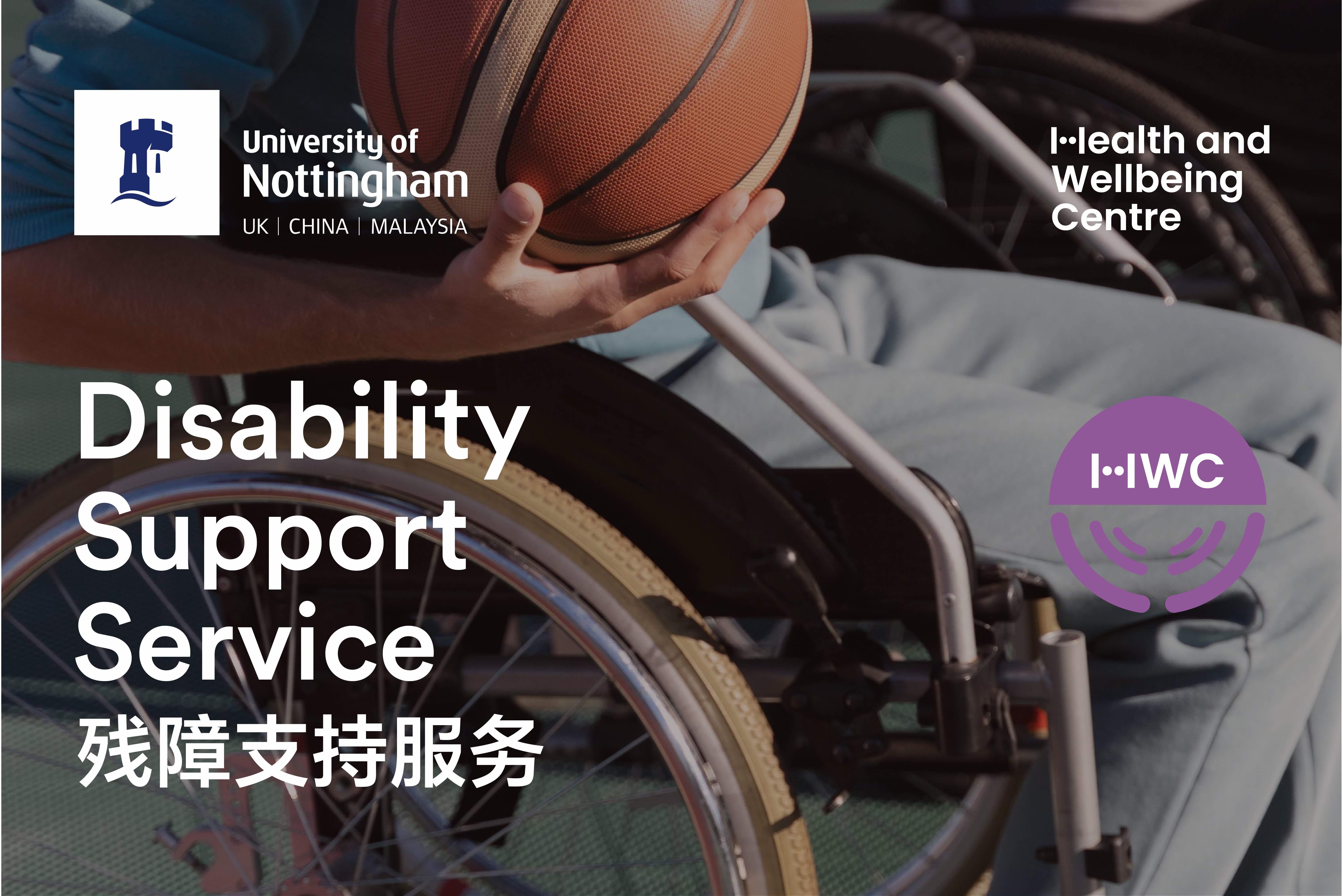
Disability Support Service
We are here to support the University community in creating an inclusive and equitable teaching and learning environment to the benefit of all students. Our specialist service provides student-led support to enable disabled students to flourish as independent learners.
We are here to help you if you have a disability, mental health difficulty, long-term medical condition, autistic spectrum condition, or a specific learning difference such as dyslexia, dyspraxia, dyscalculia or ADHD.
We hope you find our Welcome video informative. If you would like to provide feedback to help us develop its content, please email your ideas to disability-support@nottingham.edu.cn
I have a long-term mental health condition, can I get a Support Plan?
Lots of students that have Support Plans have one because of a mental health condition that has been long term and has a negative impact on their lives. For example, they may have been seeing their GP for an on-going depressive episode or be struggling with an anxiety disorder. As with other conditions, we ask students to provide evidence, but we are well equipped to discuss student mental health needs and recommend adjustments for students with on-going symptoms.
Don't forget the Health and Wellbeing Center are also there to offer support.
What sorts of long-term health conditions might I get support with?
If you have a long-term health condition and it impacts your day to day activities, we’d recommend you get in touch with us. Good indicators that you might benefit from a Support Plan through our team would be if you’ve had support when you were at school or if you feel your academic work has the potential to be negatively impacted by it.
We work with students with a wide range of health conditions. For example, diabetes, inflammatory bowel diseases, sickle-cell anaemia, multiple sclerosis, chronic fatigue conditions and asthma.
We work with students to develop a plan that is appropriate to their needs, recognising that some conditions can flare and fluctuate or are progressive in nature. In some cases, students just need modest adjustments to their exam arrangements such as rest breaks, while others might require a comprehensive plan of supports putting in place.
Please don’t be put off as you think your condition isn’t serious enough or is currently well managed. You might be surprised at how useful a few practical adjustments might be.
Is a letter from my school sufficient evidence for extra time?
For full access to support and reasonable adjustments, you will need to have a report that identifies you have a specific learning difference (SpLD).
For people who were diagnosed internationally, UNNC accepts both pre- and post-16 evidence from:
- An educational psychologist, specialist teacher, occupational therapist or equivalent
- An Interim Assessment Report
- EHC (Education, Health and Care) plans
- Reports from an appropriately qualified medical practitioner
For people who were diagnosed in China, a report from a local 3-A level hospital that identifies the special learning difference is accepted.
Evidence must include appropriate diagnostic information of the assessment carried out to identify the specific learning difference.
Further assessment should also be completed from Disability Support after we check your evidence.
How does data sharing work with Disability Support Services?
Please be assured that your information provided will be stored securely and with the purpose of setting up an effective Disability Support Plans - any data shared is done on a need-to-know basis.
Once your Support Plan has been set up, this will be recorded on BPM system. This will include any information about the nature of your disability, this will also contain recommendations and will be viewable by yourself and other relevant teams. Please note, School Disability Liaison Officers, your Subject Module Conveners will usually be able to view your plan.
We won't share information about your disability with external agencies (eg future employers, doctors) without your consent and information shared is so that your accessibility needs are met. The exception of this is in situations with safeguarding concerns.
Please be assured if you have a Support Plan and adjustments put in place to meet your needs as a disabled student this will not be recorded on your personal files, transcript or award certificate.
We adhere to the University of Nottingham’s Data Protection Policy and to the requirements of the General Data Protection Regulations (GDPR). To view a complete description of how and when we process the personal data of students and applicants please view our full privacy statement.
What support is available to PGR students?
As a postgrad student, your Support Plan will be tailored to your needs. This may include adjustments to your working pattern, ergonomic equipment and extensions to deadlines where required. Please contact us to discuss arranging a Support Plan.